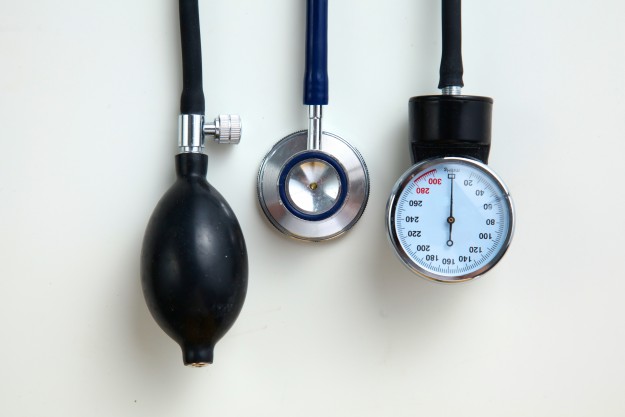By Dr. Oscar Cingolani
We all know high blood pressure is a global threat, often called “the silent killer.” In fact, hypertension is responsible for one in eight deaths worldwide, and it is the major culprit behind stroke, heart and kidney disease.
In a new effort to curb this deadly impact, the American Heart Association and the American College of Cardiology recently released the first new comprehensive high blood pressure guidelines in more than a decade.
Hypertension is now defined as readings of 130 mm Hg and higher for the systolic blood pressure measurement, or readings of 80 and higher for the diastolic measurement. That’s a notable change from the old definition of 140/90 and higher, designed to take into account the complications that can still occur at those lower numbers.
Now, by lowering the definition of high blood pressure, 14 percent more people will be diagnosed with this condition. The impact could be significant because some patients—such as those with increased cardiovascular risk factors—will greatly benefit from earlier, more aggressive medication treatment.
What’s also important here is that the new guidelines strongly recommend looking at hypertensive patients as individuals with unique health histories during their evaluation, diagnosis and treatment. Not all patients falling under the new hypertension category will require immediate medication treatment; most will require an initial trial of lifestyle changes (weight loss, low-salt diet, exercise, etc.)
At Johns Hopkins, we see these changes as a golden opportunity to help more people to extend their lives by preventing, detecting, managing and treating potentially deadly hypertension earlier, and more effectively.
Through the Johns Hopkins Hypertension Center, we treat patients with primary hypertension, which represents about 90 percent of people living with high blood pressure. We also provide consultative care for patients around the world who have high blood pressure that is difficult to diagnose or treat, and who might have an identifiable cause for their hypertension.
For each of these patients, we take the recommended personalized approach, which has consistently been our philosophy for providing care. We are employing the latest technology to noninvasively determine what the ideal blood pressure is for each patient. We also use state-of-the-art imaging and blood tests when considering secondary causes of hypertension, such as sleep apnea, adrenal gland disorders, renal artery or thyroid problems—conditions not routinely investigated.
And although not every hypertensive patient will require medication under the new definition, we carefully determine which drugs patients should take to prevent brain, heart and kidney disease. We’ve even started to perform genomics testing in difficult-to-treat patients to more accurately diagnose their form of hypertension and to choose the right medication for their genetic makeup.
Johns Hopkins researchers and clinicians also continue to be at the forefront of exploring ways to prevent and manage high blood pressure and its effects. Among their noteworthy research:
- Antihypertensive drugs may help preserve cognitive function in people with high blood pressure. Johns Hopkins researchers led a study showing that hypertension in midlife raises the odds of memory problems in old age. When treated early, though, this risk may drop.
- Another Johns Hopkins study helped to solidify the link between weight gain and the risk of high blood pressure. This is especially true from young adulthood through midlife.
Each year, 7.5 million people around the world die due to high blood pressure, often because they don’t know they have it or they don’t realize the threat it poses to their health.
We applaud the new definition of high blood pressure and its potential to increase hypertension awareness and encourage changes for healthier lifestyles. And we will be using these guidelines to help people around the world to reduce and manage hypertension to live better, healthier lives.
Dr. Oscar Cingolani is an assistant professor at The Johns Hopkins University School of Medicine, Division of Cardiology. He also serves as the director of the Hypertension Center, associate director of The Johns Hopkins Hospital Coronary Care Unit, and member of the Echocardiography Lab and Outpatient Cardiology Clinic.
